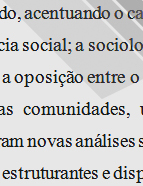

................................
Finally, let us take as our observatory the Dicionário de História de Portugal (Dictionary of Portuguese History, published between 1963 and 1971), edited by Joel Serrão, a historian with a literary background and aligned with the Annales. What does this monumental work tell us about the institutions and the profile of their historians on the eve of 25 April 1974?
Contrary to what was happening with the attacks on corporate issues, the DHPJS did not deal excessively with this subject, with the exception of the Casa dos Vinte e Quatro, the assemblies in the Cortes (it seems, in fact, a planned and strategic choice) and the census of trades and positions (lawyer, bailiff, master, master craftsman, archer, chief accountant, caulker, leather worker, candle maker, stevedore, friar, almotacé, storekeeper, chamberlain, chancellor, tax collector, treasurers, mayor, ensign, captain, constable, squire, master of the horse, general, marshal, butler, captain-donatário, admiral, almoner, magistrate, judge, judge of the people, judge of the outer courts, ombudsmen, notaries, councillors). The same was true of local administration, where not even the Lisbon City Council was mentioned, only a general entry on municipalities and articles on the almotaçaria (a type of tax office), almoxarifado (warehouse) and direito de correição (right of correction). There is also no particular focus on the economic and financial field, only very general entries on banks, factories, commercial companies and two specific references to the Pinhal de Leiria and the Lezírias do Tejo e Sado.
The most abundant theme continued to be that of central government institutions, with a long list of entries: War Council, Board of Trade, Royal Censorship Board, Post and Telegraph, Casa dos Contos, Casa da Mina, Terreiro do Trigo, Casa da Índia, Navy Arsenal, Royal Chancellery, Casa do Cível, Desembargo do Paço, Royal Treasury, Clerk of Purity, Council of State, Council of Finance, Overseas Council, Ministry of Finance, Table of Conscience and Orders, Council of Ministers, Public Prosecutor’s Office, Table of Conscience and Orders, Literary Providence Board, Royal Naval Academy, Royal Council, Ministry of the Kingdom, Lisbon Geographical Society, National Republican Guard and House of Supplication. Surprisingly, however, the National Constituent Assembly, the Chamber of Deputies, the Chamber of Peers, the Civil Government, the Board of the Three States and the Court of Appeal of Porto are absent, not to mention the key institutions of the Estado Novo. Alongside this panoply, we also find core institutions of the monarchy such as the Houses of the Great (Austria and Portugal, Cadaval, Bragança, Queens and Infantado).
This work is financed by national funds through FCT - Foundation for Science and Technology, I.P, in the scope of the projects UIDB/04311/2020 and UIDP/04311/2020.
